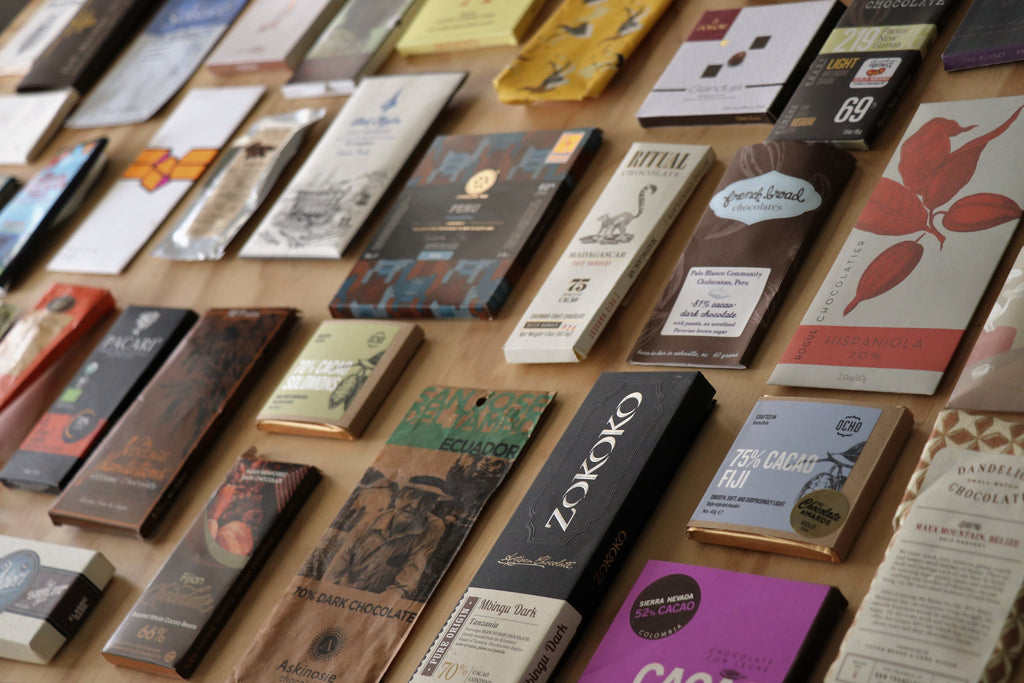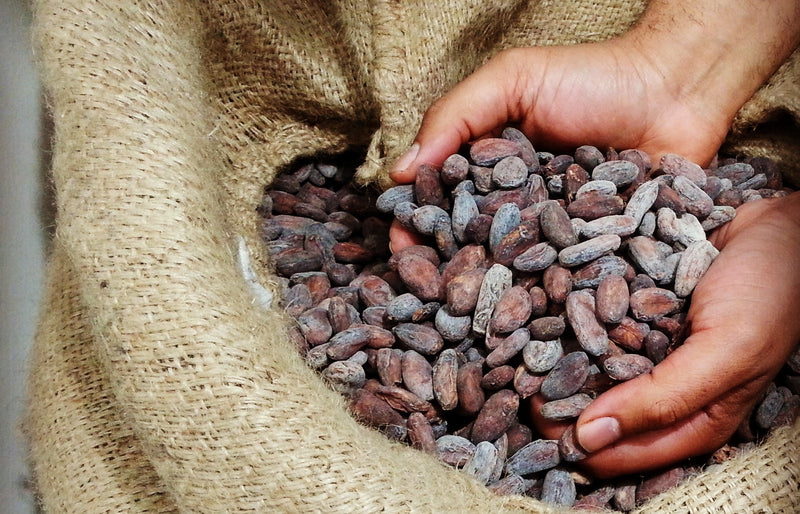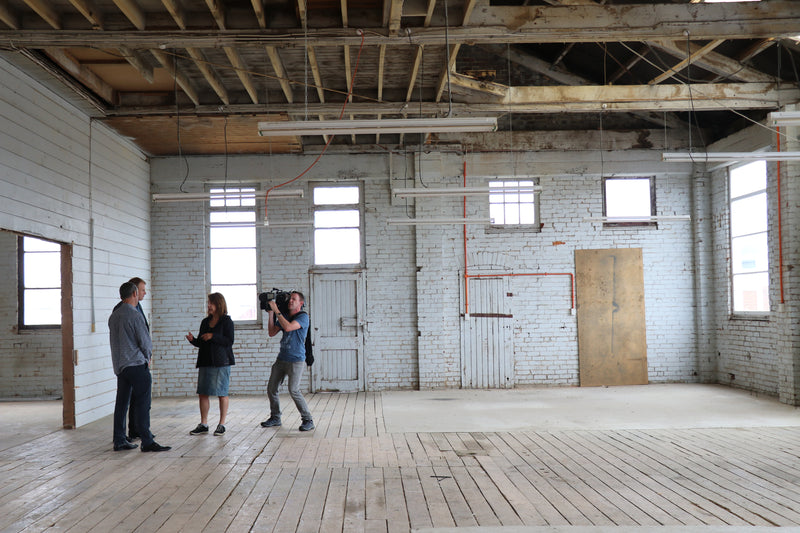Meet OCHO Founder Liz Rowe
The Otago Chocolate Company was founded nearly six years ago on the back of a curiosity about chocolate, some cacao beans, a knack for making things and plenty of determination. If you ask the woman behind it all why she started the company, she would probably say it just seemed like a good idea that needed to happen. That motivation has kept her going to this day as OCHO has changed from being a small privately-owned company to a much more ambitious enterprise with more than 3,000 investors. Meet OCHO Founder Liz Rowe.
How did you end up as a chocolate maker?
Some people know from a young age what they are going to do for a career, but I didn’t. A brief period studying accountancy didn’t end well, but then I shifted focus to journalism and loved that. After a few years working on newspapers, including a stint overseas, I ended up in corporate communications in Wellington. Then I had one of those ‘better do it now’ moments and decided to do what I’d kind of always wanted to do, and moved to Dunedin to study fine arts.
My chocolate ‘aha’ moment was actually when I discovered Whittakers Dark Ghana, but I got more curious about it on a trip to Mexico eight or so years ago. Despite having such a rich history of cacao, the chocolate scene there was mainly big chocolate from the USA and I couldn’t find any decent plain dark chocolate. I started wondering how chocolate was made and when I got home started experimenting with what was essentially a home hobby set up. Craft chocolate making was in its infancy so there wasn’t any formal training to be had.
"I don’t like failing so I think once you decide to do something you have to give it 100%."
I had to figure out how to make it myself with the help of a few online resources and some other makers who have been generous with the advice and support. One thing followed another and before I knew it I was set on the road to starting to make chocolate commercially. So I never actually set out to become a chocolate maker, but there’s a famous Mark Twain quote about being more disappointed by the things you didn’t do than the ones you did do. That’s so true and even if I didn’t think I’d do it forever I’d never want to be too afraid to give something a try. That said, I don’t like failing so I think once you decide to do something you have to give it 100%.

There are so many kinds of chocolate out there, what makes OCHO chocolate unique?
All OCHO chocolate bars are made with cacao beans grown in the Pacific. Papua New Guinea is where we get the majority of our beans, and we also go to the Solomon Islands and Fiji. We used to have a bar made with beans from Samoa, but at the moment we can’t source beans from there. I travel to meet with the growers, taste their produce, and see how they are processing the beans from the pod on the tree to the dried cacao beans we receive in big sacks.
"We don’t aim to make every batch taste the same, we want to bring out the unique flavours of the beans that vary from origin to origin, harvest to harvest."
We don’t blend the beans once they arrive in Dunedin and we roast them in small batches. We don’t aim to make every batch taste the same, we want to bring out the unique flavours of the beans that vary from origin to origin, harvest to harvest. Then using our hands-on craft making processes, tasting and testing at every stage, we winnow, grind, temper and wrap the chocolate.
I like to think of chocolate as its own food class, rather than lumped in with confectionery. All our bars are dark chocolate and we try and keep the sweetener as low as possible so while OCHO chocolate is a treat, it’s a good treat. Alongside that is knowing where the beans come from and that we’re supporting our Pacific neighbors. I want to feel good about the chocolate we make and I want our customers to feel good about buying and eating OCHO chocolate.

Who are your competitors?
Recently I was quizzed about this in a radio interview and it threw me a bit. The interviewer was looking for me to name other craft bean-to-bar chocolate makers as the competition but we really are not competing with them, especially other New Zealand makers. As far as I’m concerned, the more people learn about craft chocolate and the more they try different styles, the better.
I guess our main competition is imported chocolate. That ranges from big overseas brands to smaller brands that look like a New Zealand craft product but are actually using chocolate made in big factories overseas. Real New Zealand-made chocolate has a great reputation and it’d be fantastic if it was recognised on the global stage alongside our wine and dairy products. We are looking at creating a New Zealand craft chocolate makers collective to work together to help achieve that.
Did you buy the Cadbury factory?
I get asked this a lot, and the answer is no. There was a real sense of disappointment in Dunedin with the closure of the Cadbury factory as chocolate making has a long history here, starting with Hudson’s biscuits. Many people rallied together to put forward expressions of interest to buy the rights to make some of the iconic Cadbury production lines. When that plan didn’t come to fruition, the people running the campaign were talking about plan B to set-up a new chocolate factory somewhere else, which is when I thought OCHO needed to be involved. We combined forces and launched an equity crowdfunding campaign last November for people to invest in the expansion of OCHO and keep chocolate making in Dunedin. In less than 48 hours we raised our target of $2 million with the support of more than 3,000 new OCHO owners.
"In less than 48 hours we raised our target of $2 million."
We are now weeks away from launching our new production facility and I can’t believe how far we have come in 12 months. We will be ready for tours early next year. It won’t be anything like Cadbury World, mainly in size, but also in content. The entire process, from how the beans are grown and processed to how the chocolate is made and turned into bars will be on show - no secrets here! Plus we’ll be doing some tasting because we really want people to understand the difference between big chocolate and craft chocolate and how different chocolate tastes depending on where the beans are grown.

Will OCHO lose its quality when you get a bigger production line?
Craft chocolate is a bit like craft beer in that it there is an obsession with quality and the craftsmanship of the making process no matter how big the company is. Our equipment might change a little, but that fundamental approach will still be the same. We will never tip beans into one end of the production line and get wrapped chocolate bars shooting out the other. We have actually started using a couple of the new machines at our current premises and they are not only making life easier for our team, but the chocolate is also really delicious.
Do you ever think about what might have happened if you never tried to take OCHO to the next level?
How to scale and to what level is probably the biggest issue in growing a business. Sometimes I’ve thought it would have been nice to stay small and boutique, but the cost of bringing in beans to New Zealand was pushing me towards needing to be a bit bigger. Staying small is actually quite hard because your costs are high and there’s a limit to what people will pay for a chocolate bar. On the other hand, growth requires investment and involves employing staff which has its own set of issues.
"I’m now the General Manager of OCHO rather than the owner. I have more support, but equally, there’s more riding on our success."
To some extent, the decision was taken out of my hands with the crowd-funding campaign. This was a completely unanticipated development that has created a whole new set of opportunities and challenges. I’m now the General Manager of OCHO rather than the owner. I have more support, but equally, there’s more riding on our success.
Scaling up means we have a bigger platform to stand on and more people listening, so I think it is worth all the effort. As chocolate makers we have to accept the world is not going to switch from big chocolate to craft overnight. It takes time for attitudes and taste buds to change, but we have a really strong contingent of supporters who are interested in things like what’s really in chocolate, where it comes from, and our core values. Eliminating the mystery around chocolate and connecting product, place and people is part of a bigger picture.



